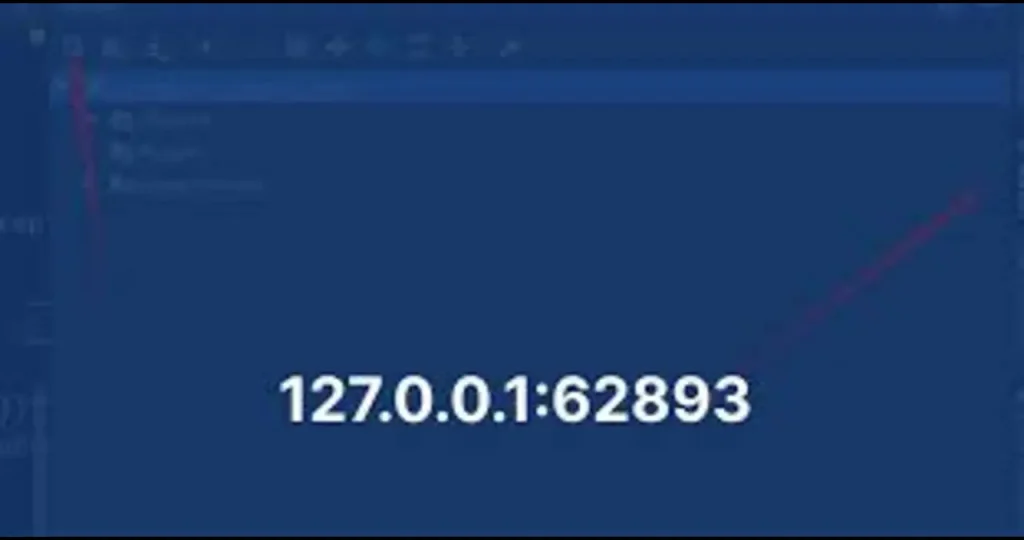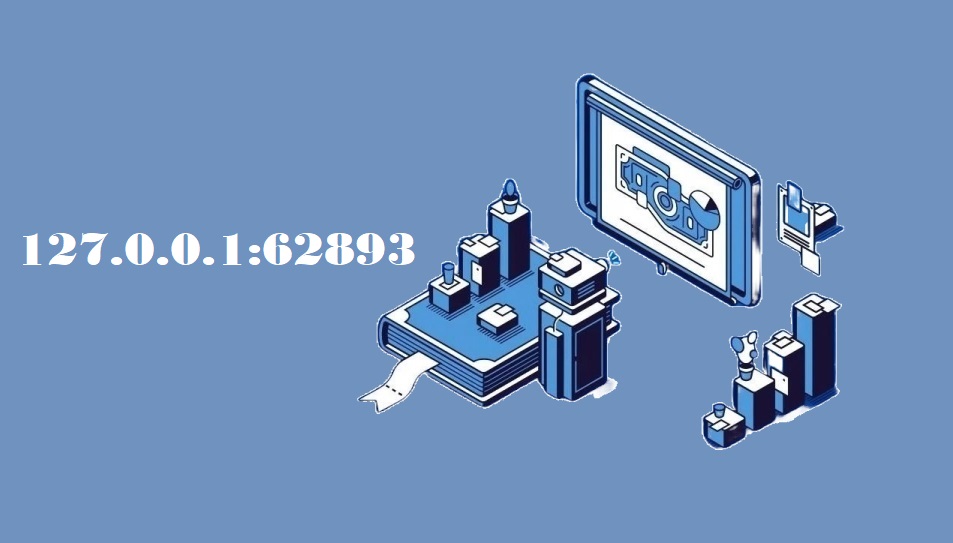127.0.0.1:62893 is a loopback address often encountered when working with network applications, where encountering the error message ‘localhost refused to connect’ can be a frustrating roadblock for developers and IT professionals alike. This issue often revolves around this crucial component for internal communication within a computer system.
Understanding the underlying causes of this error is vital for effective troubleshooting and optimization of software workflows. Factors such as port conflicts, firewall settings, and misconfigurations can all contribute to connectivity issues on this address, making it essential to navigate these challenges with clarity.
In this blog post, we will delve into the common errors associated with 127.0.0.1:62893, providing insights and practical solutions to ensure your applications run smoothly and efficiently, ultimately enhancing your development process. Whether you’re debugging a web application or setting up a local server, having a grasp on how to address these issues can save you valuable time and resources.
What is 127.0.0.1:62893?
127.0.0.1:62893 is a loopback address used for internal computer communication. This address facilitates local testing by directing network traffic back to the originating machine. Commonly, developers use it to test web applications and other network services without external internet connectivity. Port 62893 is an arbitrary port number used by specific services or applications.
The loopback address ensures packets don’t leave the host computer, simulating a network environment. It’s invaluable for diagnosing and debugging software, as it isolates issues within the local system. Additionally, this address bypasses external variables, providing a controlled environment. Understanding 127.0.0.1:62893 is crucial for resolving connectivity errors and optimizing development workflows efficiently.
Software development and debugging on 127.0.0.1:62893
127.0.0.1:62893 is a powerful tool for software development and debugging. It allows developers to test network applications locally without needing external resources. This isolated environment helps identify and resolve issues quickly, ensuring a smoother development process. By using this loopback address, developers can simulate network conditions accurately.
This reduces the impact of third-party factors on their tests. Moreover, the controlled setup ensures that debugging is more focused and efficient. Errors are easier to trace and fix since they are confined within the local machine. Transitioning between testing and coding becomes seamless. This results in a more streamlined workflow. In essence, 127.0.0.1:62893 provides a safe and effective space for perfecting your software.
Accessing local services
To access local services using 127.0.0.1:62893, simply open your web browser and type the address directly into the address bar. This request is processed by your computer’s TCP/IP stack, which routes it to the designated local service, often a web server. Ensuring the correct port number is crucial to avoid conflicts with other services.
Verifying firewall settings can also help, as these might block the request. Disabling proxies temporarily can eliminate potential interference. Use online secure tunnel services to bypass localhost restrictions if remote access is necessary. This setup helps developers test applications efficiently within a controlled environment. Leveraging 127.0.0.1:62893 ensures streamlined development and debugging, free from external network variables.

Hacking
Hacking often brings to mind illicit activities, but there are ethical hackers too. These professionals work to identify vulnerabilities and strengthen security. The term broadly refers to exploiting system weaknesses for unauthorized control. Techniques range from social engineering to sophisticated malware. Hackers often target network configurations, which can include localhost addresses like 127.0.0.1:62893.
Misconfigurations or outdated software can open doors for attacks. Ethical hackers simulate these attacks to find and fix vulnerabilities. They provide invaluable insights that help bolster network defenses. Understanding these tactics can help developers secure their applications. Always keep software updated and adhere to best security practices. Ethical hacking is essential for robust cybersecurity. Knowing the risks and defenses ensures safer software development.
Potential benefits of 127.0.0.1:62893:
- Provides a controlled development environment for accurate testing.
- Helps identify bugs early, improving software reliability.
- Minimizes risks by eliminating external network dependencies.
- Simplifies debugging with localized error tracing.
- Enhances security by reducing exposure to external threats.
- Optimizes workflow by offering an isolated, stable setup.
- Ensures efficient troubleshooting for network-related issues.
- Facilitates seamless communication between local services.
- Supports educational purposes for learning coding basics.
- Allows safe experimentation without affecting live systems.
Practical applications of localhost:
Localhost, particularly 127.0.0.1:62893, is indispensable in web development. Developers prototype applications locally, ensuring functionality before deployment. This address facilitates efficient debugging, as errors are confined within the local environment. It promotes collaboration among developers working on shared projects.
Local databases, such as MySQL and MongoDB, leverage localhost for secure data manipulation and testing. Network administrators use it for loopback testing, validating network protocols without external traffic. Educational institutions harness localhost for teaching coding basics, offering hands-on experience in a controlled setup.
Additionally, it serves as a platform for workshops, providing practical insights into network operations. For security analysts, localhost offers a safe space to study malware behavior without risk. Ultimately, 127.0.0.1:62893 is a versatile tool, crucial across various domains.
Is 127.0.0.1:62893 hindering your software development flow?
Struggling with connectivity on 127.0.0.1:62893 can disrupt your development workflow. Misconfigurations and port conflicts are common culprits. Troubleshoot by checking your firewall and proxy settings. Restarting your server or switching to a different port might help. Sometimes, conflicting services can block the loopback address. Ensure no other applications are using port 62893. Using tools like Netstat can reveal these conflicts.
Consult documentation for software-specific configurations. For persistent issues, professional troubleshooting might be necessary. Trisync Solutions UK offers expert help to identify and resolve localhost problems. They ensure your applications run smoothly and efficiently. Don’t let these errors stall your progress. Optimizing your development environment can save you valuable time. Addressing these issues promptly enhances productivity.
Why 127.0.0.1:62893 is Important ?
127.0.0.1:62893 is a vital tool for modern developers. It provides a secure, isolated environment for testing software applications. By using this loopback address, you can identify and resolve issues quickly. It also minimizes external dependencies, ensuring stable and accurate testing conditions. Transitioning between coding and testing becomes seamless, optimizing the development workflow.
Moreover, it serves as an essential learning tool for students and educators, offering hands-on experience in a controlled setup. For network administrators, it provides a reliable platform for troubleshooting and validating protocols. This addresses critical security concerns, reducing exposure to external threats. Leveraging 127.0.0.1:62893 allows developers to focus on functionality and performance, ensuring robust software solutions.

Conclusion
Navigating the complexities of 127.0.0.1:62893 is essential for modern software development. This loopback address facilitates secure, efficient testing environments. By isolating issues within your local system, you can streamline debugging processes. Moreover, leveraging localhost minimizes external variables, ensuring more accurate results. Developers can enhance productivity by resolving common errors like port conflicts and firewall settings.
Understanding the importance of localhost in networking, security, and education adds tremendous value. Utilizing this address optimizes workflows and ensures smoother software deployment. As you fine-tune your applications, remember the crucial role 127.0.0.1:62893 plays. Don’t hesitate to seek professional help when needed to maintain optimal development flow. Implementing best practices around this address guarantees robust and secure applications.
Frequently Asked Questions (FAQs)
What causes the “localhost refused to connect” error?
This error can stem from port conflicts, firewall settings, or misconfigurations. Ensure the port isn’t in use by another service and that your firewall allows traffic on this port.
How can I resolve port conflicts with 127.0.0.1:62893?
Use tools like Netstat to identify conflicting services. Restart your server or switch to a different port. Make sure no other applications are using port 62893.
Why is 127.0.0.1:62893 important for developers?
It provides a secure, isolated environment for testing applications. This loopback address helps identify and resolve issues quickly, minimizing external dependencies for stable and accurate testing.
Can localhost be accessed remotely?
Normally, localhost is for local machine use. However, secure tunnel services can allow remote access, bypassing localhost restrictions. Always ensure security measures are in place.
How do firewalls affect localhost connections?
Firewalls can block traffic on specific ports, causing connection issues. Ensure your firewall settings allow traffic on the desired port to facilitate smooth localhost connections.


